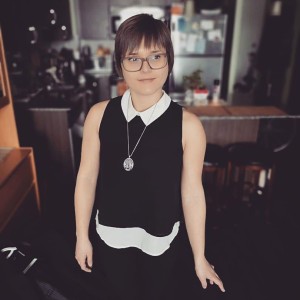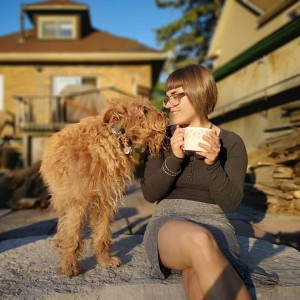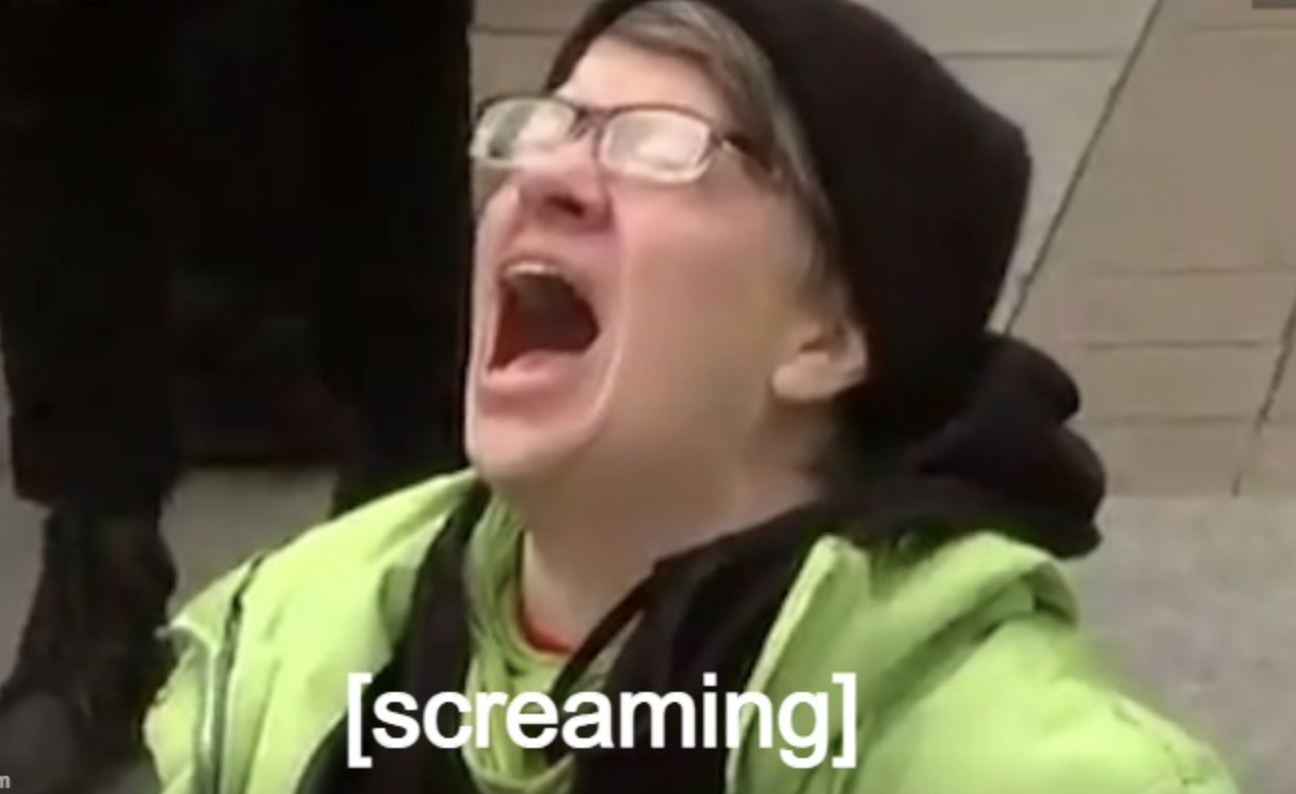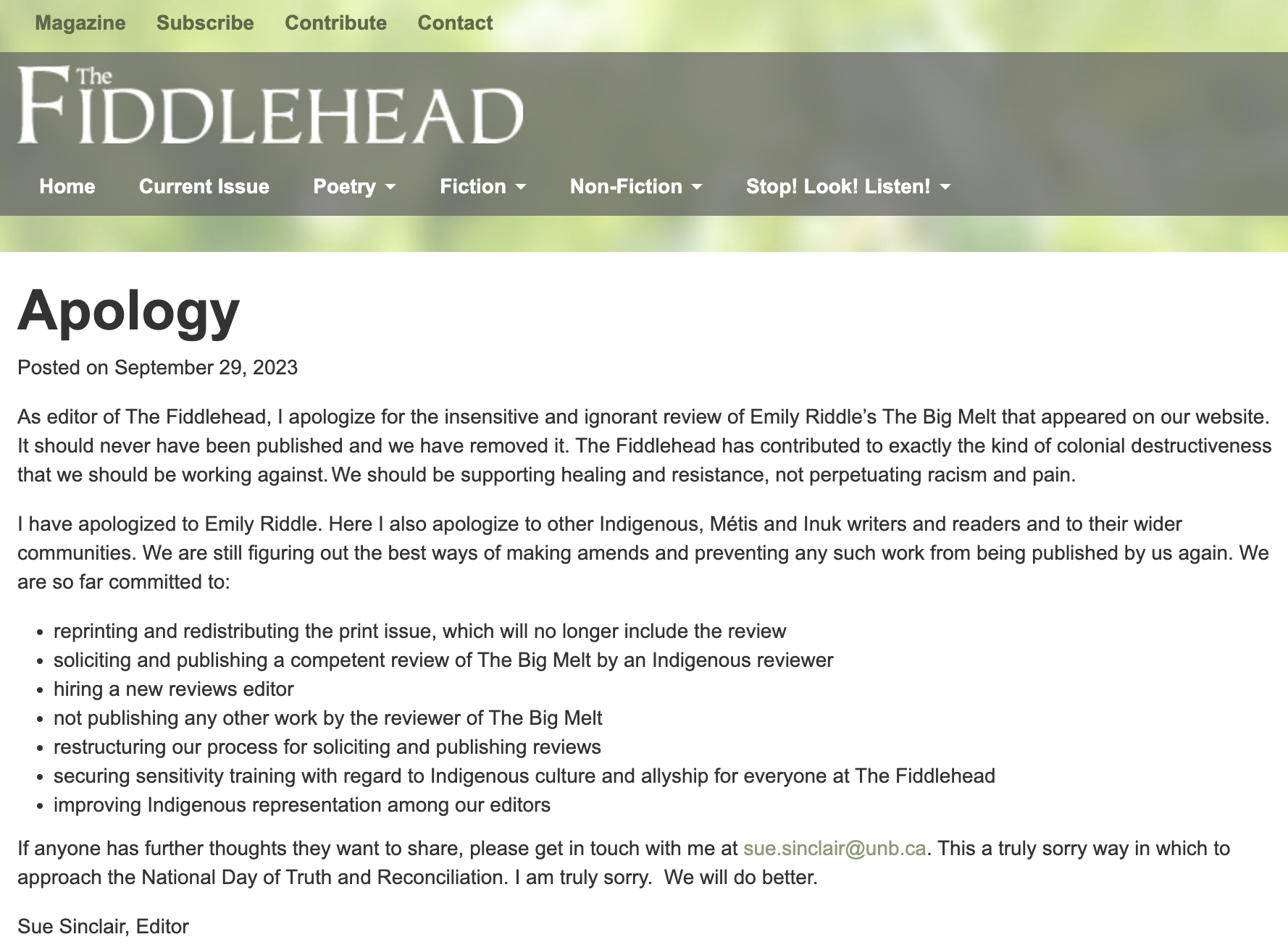Suzanna Derewicz is a writer and psychotherapy student based in Toronto, ON. She has recently been published in CV2, PRISM international, Arc Poetry Magazine, on Metatron‘s OMEGA blog, in Peach Mag, the Minola Review, and others. Her first chapbook, Maggie Monologues, was published with words(on)pages press.
When I read Christopher Dewdney or Daphne Marlatt, I don’t always understand what they’re saying, but I feel the power of their words. I like their work, but whatever connection we have is not always built on total comprehension. Do you find some poetry incomprehensible? If the meaning escapes you, are there other ways to enjoy poems? If you are carried away by tone, rhythm, and mood, is that enough?
I’m of the mind that there is no one way to enjoy poetry; my own experience of a poem can change day to day depending on my state of being, what I’ve been thinking about, mulling over, enveloped in. I can return to a poetry collection years later and find it to have shifted meaning for me entirely. I would never call a poem incomprehensible though, rather if it’s challenging me in some way, I like to ask why. I like to reflect and pinpoint what parts of myself are resisting a piece of work. For me, the idea of meaning is relative; connecting to the power of a person’s words or some visceral feelings they invoke has equal meaning to that offered by a piece that appeals to my love of narrative, for example. There are many ways I as a reader can be met and moved.
In your interview with Greg Zorko, you mentioned that you wanted to see more poets who were choosing to be “straight up” get published. “Gaslight”, your poem in PRISM 56.3, mixes sadness, vulnerability, and wicked shots of humour. Have you moved closer to the type of “straight up” expression you mentioned? How has your style changed since you started writing poetry?
I got closer to a sense of transparency and refusal for apology in my poetry the more personal therapy I underwent. As I built self esteem and released myself from an almost constant need to be liked and approved of by all, I censored myself less. My writing has changed in that I don’t hide as much anymore, I don’t tuck myself away into metaphors like I used to. I like to go to the raw places because that’s what feels most authentic. On relational level also, I found my people, and by finding spaces within Toronto’s writing community that encouraged me to test out this truer voice, my writing became more my own.
In your Small Press Writing Day post, you mentioned that you were starting to write prose. What are some early observations from this experimentation? My friend recently suggested that I pick a different location for writing poetry. Are there similar accommodations you have made for writing prose? What kind of prose are you working on? Fiction? CNF? Essays? When will you begin to submit it for publication? If you’ve already started, how’s it going?
I can be freer with prose; whether it’s fiction, creative nonfiction, or an essay. I think this is because poetry in many ways serves as a coping mechanism for
me; I write it from a dark place more often than not. These days have been lucky ones, I have felt safe, supported, excited, and generally optimistic for the present and future, so poetry doesn’t come out as much. I can be more imaginative with fiction for example, and tap into my magical realist roots as a writer which is where I used to write plays from. I can improvise through dance or movement to find answers to questions I have about a character; I can experiment more I think. I’m a while away from submitting for publication I’d say, mainly because getting published has started to play second fiddle to creating for my own sense of joy and pleasure. When I publish again it’ll be when I make something I think could really nourish people in some way, something I sense should be shared for reasons beyond myself.
Why did you stop writing plays?
It’s funny how my relationship to the world of theatre continues to shift, and how any resentment I felt towards the theatre industry, before I left it and after, has dissipated with the acceptance that I don’t need to have career as a writer, artist, or maker to be happy; what I need to be happy is to be in connection, in creation, and in conversation with others. I stopped writing plays originally because of how many hoops I felt I needed to jump through just to get my work seen, just for the chance to connect. That wasn’t the fault of playwriting as an art form; the hustle, budgets, and glass ceilings were just what you had to contend with to find success in that medium, in Canada, in Toronto, at that moment in time, so I adapted. I went where I could express myself faster and louder. But I owe whatever success I’ve found in poetry or writing in general to my training as a playwright; it’s helped me to find voices and personalities for my speakers, it’s helped me to show rather than tell. Sometimes I find the prose I’m writing to be veering me back in the direction of writing for the stage again, more casually, without the pressure I once put on myself to “make it”. We’ll see which medium the newer work calls for in time.
What is the master plan as a writer? What are the steps you need to take to get to where you want to be?
I don’t have a master plan for writing; I try not to pigeonhole myself into rigid ideas about how something I value needs to look like down the line, be it writing or some other thing. If it’s serving me in the moment, that’s good enough. When I get caught up obsessing about the future, the things that matter start to get strained and my life loses a bit of its magic. I’d say I’m exactly where I want to be already, right now. I’m living with my cat, in a city I adore, with friends and loved ones that are there for me, and studying to do something I’m passionate about. I think one day it might be fulfilling to finish a book of poems, or a few chapbooks, or put on a performance again but I’m not clutching to any of those outcomes too tightly. I no longer need those outcomes to feel validated in living my life.
You seem like a bit of a Renaissance woman, moving freely between various disciplines, unrestrained by any kind of rigid self-definition. Are you confident you can excel in any area of interest? Is there anything that you’d love to try that seems beyond your capabilities? How do you decide where to focus your energies? Are you open to pursue opportunities wherever they may arise, or do you move from one form to another in phases?
Historically I’ve been a Jack of many trades, I’ve dabbled in a variety of art forms and every time it feels like one is going stick around for good, it moves through me like a tide. Everything I’ve pursued though from aerial silks, to training with masks, to designing the sounds I want to play behind a performance of a poetry cycle, has taught me important lessons. It’s more about the experience for me, the process, not so much how it will build towards something because it inevitably builds towards something of value whether I plan for it to or not. Without every pursuit that came before it, without the people I met along the way informing my personal development, I’d not be training in psychotherapy now. In terms of how I decide what I’m going to focus on, I think I just go with my gut. Usually when I let something go or take a break it’s because I’ve found it’s taught me all it’s been able to, at least for the moment.
Are you still active as an actor, or has that door closed? I often whine about the soul-destroying, humiliating, and brutal process of attempting to get my work published. Is looking for work as an actor even worse? Which is the more destructive meat grinder?
Before I went into my acting audition for theatre school, the Dean of the department where I studied met with us and told those who were planning on becoming actors professionally better swallow that it would be one of the hardest career paths they could choose; I remember him telling me it would be more difficult that writing. Was it more difficult in the sense of getting gigs? I’m not sure — they both were in that respect. It was certainly more psychically numbing for me after trying it for a while; it became clear to me that I wanted to make work, not perform in other people’s work. I just felt if I was going to pursue the arts, mostly for free, I might as well go where I could make the most of all the ideas bouncing around in my head — hence playwriting, directing, dramaturgy, and eventually making the shift to writing for the page.
What is psychodynamic psychotherapy? Why this type of therapy as opposed to cognitive behavioural or any other kind?
To put it in the simplest of terms, psychodynamic psychotherapy (the modality I train in) focuses on the unconscious material a client brings into session; it will often explore how childhood experiences shape and inform current behaviours and decision-making, and explore how the past is enacted in the present. As a trainee, I am curious as to what factors shape a client’s struggle, the “why” behind it, I work with what’s at the core of what they’re bringing in so we can learn about that core more intimately. I know for myself personally, having a deeper context and understanding of why I struggled how I did was imperative to my finding agency over my mental health. Someone working with a behavioural approach might focus more on providing a client with strategies for addressing hard feelings as they come up in the moment, and a toolbox for mitigating the effects of behaviours that no longer serve them — going into the past and the reasons behind certain patterns of behaviour is, as I understand it, less a point of focus in the behavioural therapies. Ultimately though, when I’m working in the field, it will be client-centred; the modality I’ve trained in might inform how I work but it should not define how I work — the client’s needs should, and will.






Excellent interview. I loved the fact that when she was talking about being more open, she used the witty image of “tucking into metaphor.”
I had my own experience, from the client’s side, with dynamic psychotherapy about a year ago — specifically, the so-called Davanloo method. It was very intensive, very confrontational, very draining and angering and all sorts of things at times, but it ended up playing a big role in changing me as a person.
Thanks for this.
Thanks, Wayne. From your comments on the therapy, I’m not sure I would have the energy or inclination to try it, but you can’t argue with results. I have tried EFT and found that not confrontational enough.